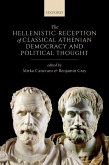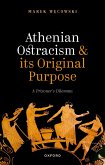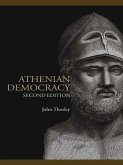Ostracism is by far the most emblematic institution of ancient Athenian democracy. This volume offers a reassessment of recently found ostraka (or potsherds, on which the names of the 'candidates' for exile were inscribed by citizens) from several Greek cities outside Athens, a thorough reconstruction of the history and of the procedure of ostracism in Athens, and a comprehensive account of the political circumstances of the introduction of the law on ostracism by Cleisthenes in 508/507 BCE. Marek W?cowski's original study focuses not only on the final stage, the day of the vote, but on the entire operation and procedure of ostracisation. Tracing the logic of the political play in Athens between the opening and final stages of ostracism, W?cowski argues that Athenian ostracism was a mechanism devised to impose compromise on the main players in Athenian political life, thereby avoiding the punishment of political elites by exile of leading politicians resulting from unpredictable votes by the citizenry. To support this hypothesis, W?cowski turns to the theory of the 'evolution of cooperation' as formulated by the American mathematician and political scientist Robert Axelrod based on the iterated prisoner's dilemma in game theory, applied as a probabilistic analogy to the dynamics of Athenian political life under democracy.
Dieser Download kann aus rechtlichen Gründen nur mit Rechnungsadresse in A, B, BG, CY, CZ, D, DK, EW, E, FIN, F, GR, HR, H, IRL, I, LT, L, LR, M, NL, PL, P, R, S, SLO, SK ausgeliefert werden.









